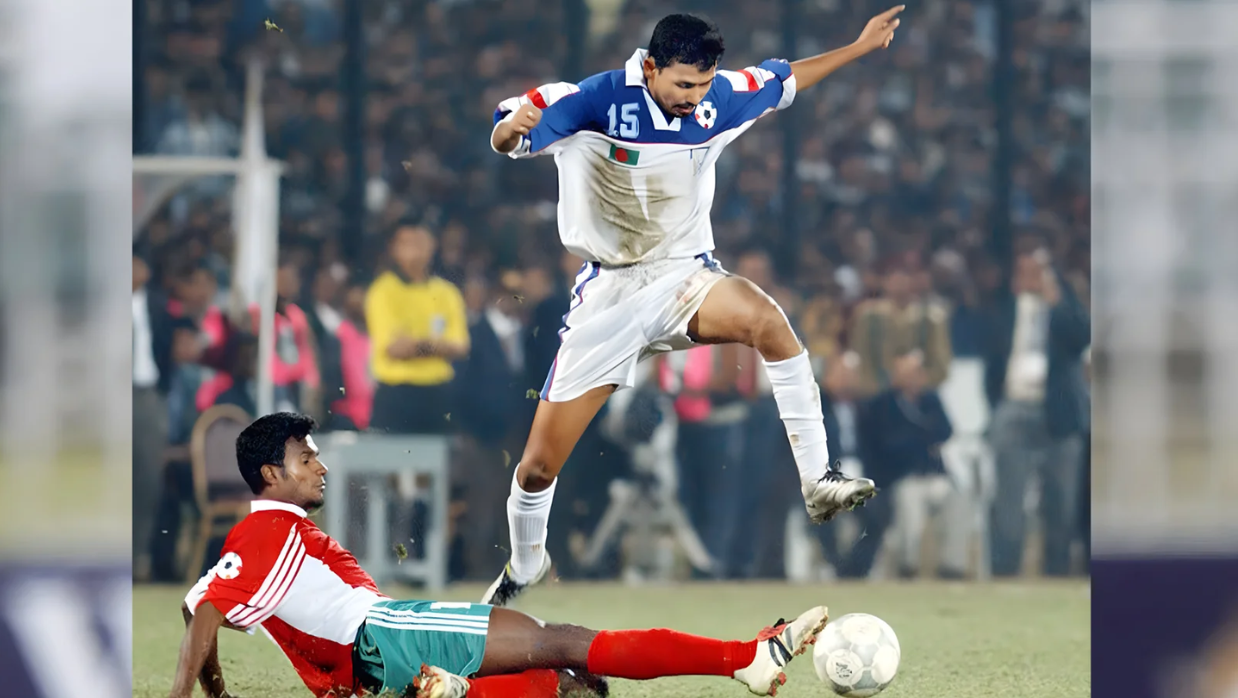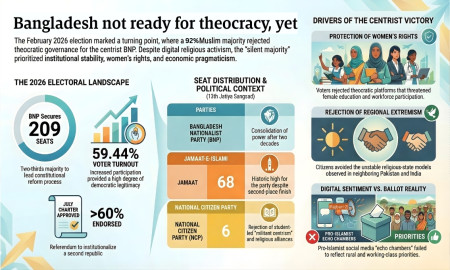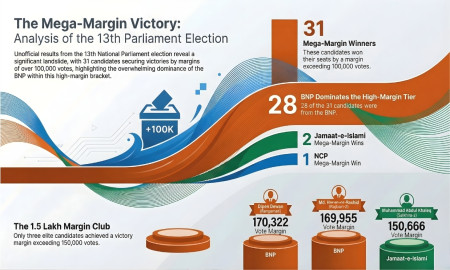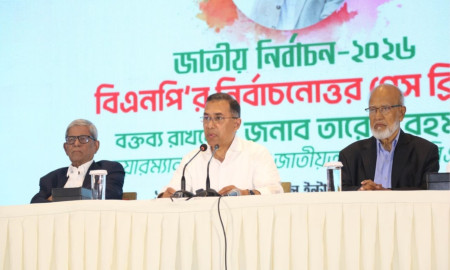The unforgettable golden goal victory over India 22 years ago

18 January 2003. A Saturday afternoon. One name echoed across Dhaka’s skies and streets: Motiur Rahman Munna!
The galleries of the then National Stadium seemed to explode into a single chant — “Munna! Munna!”
In Bangladesh football history, Munna remains an immortal name. The reason? His golden goal against India in the semi-final of the 2003 SAFF Championship. The score was locked at 1-1 after 90 minutes. Then, in the 98th minute of extra time, midfielder Munna unleashed a bullet-like left-footed shot from 25 yards that flew into the Indian net. The final whistle blew immediately. Bangladesh had won.
Incredibly, that remains Bangladesh’s last victory over India. Officially the match is recorded as a draw because of the golden goal rule (the tie was decided in extra time), but records matter little. 18 January 2003 was a day of pure football carnival in Bangladesh.
Tonight (Tuesday) at 8:00 pm when Bangladesh face India again in Dhaka, older football lovers will surely travel back in time to that triumphant afternoon.
That victory still shines as one of the brightest dots on Bangladesh’s football map. FIFA had then introduced the golden goal rule for knockout matches — the first goal in extra time ended the game. Munna delivered Bangladesh’s only golden-goal win in history.
Munna became the hero, but Rokonuzzaman Kanchan could easily have claimed that title. It was his goal that put Bangladesh ahead. In the 77th minute, Kanchan rose above the Indian defence to head home Arman’s corner perfectly.
Yet within five minutes India equalised. In the 81st minute, Bangladesh lost possession in midfield, substitute midfielder Alvito D’Cunha received the ball, faced three defenders and goalkeeper Aminul Haque, and cleverly placed his shot past an outstretched Aminul. The seemingly harmless effort stunned the stadium. Defenders Sujan, Rajani and Nazrul — the central defensive wall — were breached.
Aminul, a hero in countless battles, was beaten that day despite his best efforts. Nazrul made a rare positional error, but in midfield Arman Mia sprinkled his artistry while Alfaz poured everything into attack. Even 22 years later, Alfaz remembers Munna’s goal vividly: “Munna played a wall-pass with me in midfield, surged forward and suddenly unleashed that shot. It was almost miraculous. We never thought we would win like that. It was an indescribable feeling.”
India’s striker I M Vijayan was outstanding too, dropping deep, using clever back-heels and measured volleys to create chances. But in the end Kerala’s “Black Deer” finished on the losing side.
One side ecstasy, the other agony — that is what made the match unforgettable. Bangladesh had led earlier; Kanchan saw one header cleared off the line and sent another volley wide. In the second half they missed an open goal. Luck favoured India for long periods, but not till the very end.
The Bangladesh team that day: Aminul, Sujan, Nazrul, Rajani, Parvez Babu (Forhad), Hasan Al Mamun (Titu), Motiur Munna, Arman, Joy, Alfaz (Ujjwal), Kanchan.
From early afternoon, people poured into the stadium like a human river — a crowd not seen in years. When India equalised, the packed galleries fell deathly silent; you could have heard a pin drop among 50,000 spectators. But Munna’s goal reignited the roar. When the final whistle sounded, the entire stadium’s joy converged into one glorious moment.
Football had returned to the National Stadium wearing the face of dreams. Munna’s goal remains etched in the eyes, as does the picture of an ecstatic crowd. Rarely has the National Stadium witnessed such outpouring of joy.
India’s manager Debjyoti Mukherjee, a Bengali himself, came to the post-match press conference as a formality, congratulated Bangladesh in Bangla and left. One still remembers coach Georg Kottan — a man who loved Bangladesh football like his own and always considered himself Bangladeshi rather than Austrian. The architect of Bangladesh’s 2003 SAFF triumph passed away in September 2023.
His words after the semi-final still ring clear: “We created more chances than India. Apart from a brief period, we dominated the entire match.” Kottan had added, “The game should have been decided in regular time. Kanchan scored a wonderful goal.”
Kanchan scored in the final too and was seen by many as the country’s best striker then. “I actually scored two goals that day. The Thai referee disallowed one even though the ball had clearly crossed the line. There was no technology then. BFF official Sirajul Islam Bachchu bhai had said my disallowed goal was the best of the month.”
Kanchan adds, “India have always been our biggest rivals — like Abahani versus Mohammedan in our time.”
The hero of that day, Munna, has completely distanced himself from football. While some of his contemporaries coach or administer, Munna chose a different path and became a full-time businessman years ago. He still lives in Dhaka, but his exact whereabouts are unknown even to former teammates.
It is safe to assume he won’t be at the stadium tonight, but wherever he is, he will surely keep an eye on the television.
Not every moment in a footballer’s career becomes history. Munna is fortunate that an entire football nation witnessed his moment of glory. Last night, the baton was passed to the likes of Hamza and Morsalin, ushering in a new chapter.








